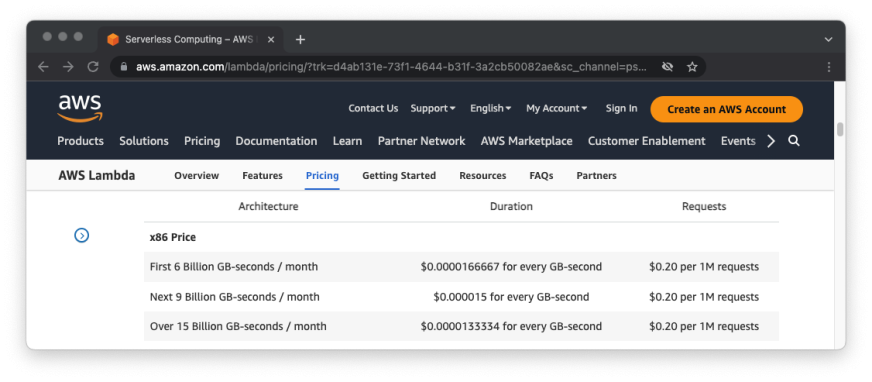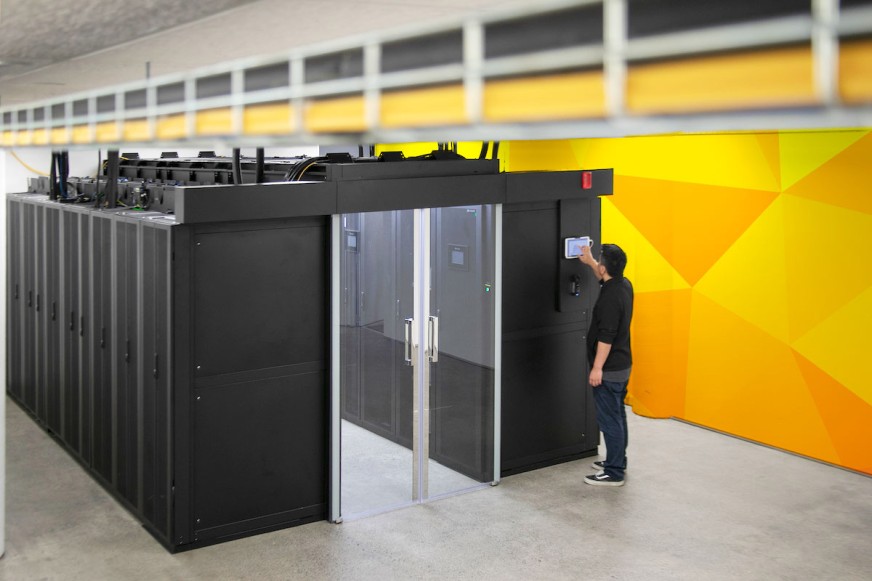For many years the well-worn story of "move to the cloud, save money" was almost an article of faith. Any business that wanted more efficient hosting was sure to hear it. But the biggest cloud of them all, AWS, has finally admitted that the reality is nowhere near as certain as that.
If you're on AWS and you're not saving the money and manpower you expected, you're not alone. In fact there's so many of you that Amazon now sees departures from the cloud as a source of genuine competition to their business. This makes sense to us: It's been clear for years that your other options just keep getting better.
AWS always claimed to lower your costs
AWS has long said that when you move to them, cost advantages - sometimes very big ones - follow. They've beaten the same drum for years:
This year: "There is clear momentum to shift compute, storage, and networking functions to the cloud. One of the top factors [...] is a desire to cut the total cost of ownership".
2023: "Organizations that used AWS Cloud, instead of on-premises data centers, were able to cut their yearly IT expenditures by 25 percent".
2022: "AWS customers have a 51% lower cost of operations compared to running on premises infrastructure".
2021: "Reducing IT costs associated with owning and managing infrastructure is often the first benefit of an organization’s cloud journey".
It has ever been thus. Even when AWS tells its own origin story from 2006, they say it was the start of a fight against "hard and expensive" IT infrastructure.
The logic seemed trustworthy enough at first. Back in 2006 plenty of companies were happy, and right, to unplug the servers that were humming in the office corner. AWS became the obvious replacement - the choice that nobody got fired for making.
Bring Your Cloud Bills Back to Earth
If your AWS bills are rising faster than the workloads involved, see how cost-effective and simpler things can be with SiteHost. Make the move get a big discount on your first 12 months!
As momentum built up, premature obituaries were written for companies like us. How could archaic things like Dedicated Servers or Virtual Servers compete with shiny new cloud services?
The answer to that question boils down to one of technology's big truisms - constant innovation. It's a force strong enough to crack the facade that AWS spent nearly two decades constructing.
Now, AWS finally admits that the cloud isn't always cheaper
The UK's Competition and Markets Authority has interviewed AWS as part of an ongoing investigation into competition (or lack thereof) in the market for public cloud infrastructure. They heard something very different to what Amazon's marketers have been saying all this time:
AWS said that the perception that once customers move to the cloud, they never return to on-premises is not correct.
Why is that? Because of customers who are backing out of the cloud to save money. As reported by Computing:
The company admitted that despite the considerable effort involved, many customers are finding it appealing to move their IT systems back on-premises. It attributed the trend to factors like cost savings, greater control over resources, and concerns about data security.
This admission goes against what AWS has been saying all this time. They've finally said the quiet bit out loud. For anyone who migrated to the cloud in good faith and hasn't seen the expected pay-off, it's a bit of a kick in the guts.
But it's not breaking news that AWS isn't always a sure-fire route to lower bills and smaller IT teams. The breaking news is that AWS has finally admitted it.
Related article: Dave Sparks of Sparks Interactive on AWS, Drupal, and more
"AWS is not a completely bad option. But I think within the first six months, the monthly cost tripled without our workload necessarily tripling. It showed that there was a cost to that growth. We were working so much harder, doing so much more. So why was the bottom line not joining us on that journey of joy?"
The facts are unavoidable: Cloud can get costly
This might be the first time that AWS has clearly acknowledged what TechCrunch has called the “cloud backlash”, but it's been building for years. When we wrote about clever companies leaving the cloud we found examples as old as Dropbox in 2018.
There's plenty of data out there. Techopedia has just released some well-timed research from the US, which finds that:
43% of IT leaders said that their original move to the cloud had been more expensive than expected.
94% of respondents had a “cloud reparation” project underway.
42% of organisations had moved, or were considering moving, half or more of their cloud-based workloads.
The five “key drivers of cloud exit” are high operational costs (which we know a thing or two about), wastage from maintaining underutilised resources, security concerns, performance and outages, and the risk of vendor lock-in and market power.
Put all of this together and the cloud exit looks to be gaining momentum. The question isn't why AWS is suddenly talking about it, but what took them so long.
How AWS downplayed the threat of customers leaving (until now)
If you carefully read AWS marketing material - the stuff that tells you that cloud services are a great way to slash your hosting bills - you can see how they kept the story on life support for so long.
One big clue is that AWS compares itself to "on premises" hosting. This might have made sense back when AWS started, but it's far from the only choice today. When AWS says that the maths works in their favour, that's because they're comparing their own cloud to you literally "building and maintaining your [own] data centers" (that quote's from the 2022 link above).
If your business isn't big enough to need an entire data centre, you're not the customer that they're talking to. And if you're aware of options like renting managed servers or colocating your own gear, then AWS isn't so willing to talk turkey.
AWS might want to pretend that things haven't changed since 2006, but you can't wish away progress. And in 2024 this is where the issue of cost gets really interesting. Because big leaps have been made in the world of hardware, and they are beefing up simpler servers much faster than cloud services.
Why AWS hasn't been talking about VPS or Dedicated Servers
While Amazon's marketing department is taking well-aimed potshots at on-premises hosting, they have much less to say about Dedicated Servers, Virtual Servers and Managed Services. Perhaps that's because these things offer companies a way to leave behind complicated and expensive cloud services without having to run their own gear (or build a data centre).
Related article (October 2024): We asked NotebookLM to make quick work of the long Cloud Exit story
"We've written over 15,000 words on the Cloud Exit, AWS, and server hardware. To wrap your head around all this Cloud Exit stuff you could set aside a lot of reading time, or ask the content-summarisation tool of the moment. We turned our words over to NotebookLM and asked for a 9-minute podcast."
It might also be because there have been head-spinning improvements in these hardware options recently. Businesses can access increasing amounts of computing power for reasonable, stable prices - and the deal keeps getting better. Every dollar invested in renting hardware goes hundreds of times further than it used to, and a lot of those gains have come in the last three or so years. It's no wonder that AWS wouldn't want you to think about that.
Read more about hardware's amazing progress:
Even AWS is alive to the post-cloud conversation. Are you?
It's refreshing to see Amazon finally talk out loud about customers leaving the cloud. But it's more important that business leaders are having their own conversations. The tide may not be rushing out, but the shine is definitely coming off the hyperscale cloud.
If your company is fully or mostly in the cloud, you need an up-to-date understanding of what that’s costing you. Even if an exit wouldn’t make sense today, it’s not too soon to construct a plan that you can execute at the right time.
Right now we're offering some incredibly special prices to companies that move to SiteHost from the cloud (or anywhere else). Even AWS knows that the jump can pay off. If you want a fresh perspective on your cloud bills, we’re always happy to talk .
Main photo by cottonbro studio on Pexels




